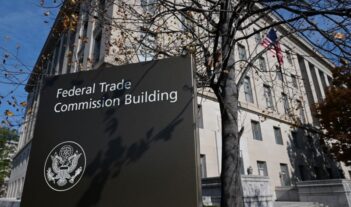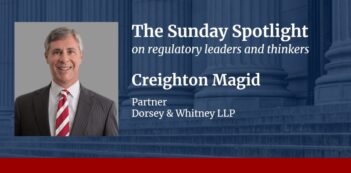
In Axon v. FTC, the Supreme Court will consider how district courts can hear constitutional challenges against agencies.
Every year, the U.S. Supreme Court hears a few attention-grabbing cases while other cases slide under the radar. But these lower-profile cases can have a much broader impact on how the government operates and functions. This year, one such low-profile case is Axon Enterprise v. Federal Trade Commission (FTC). In Axon, the Supreme Court will consider how Americans and a wide range of industries can seek relief from the power of an ever-growing, overbearing administrative state.
The case’s facts are quite similar to many contemporary policy debates around the FTC’s power, particularly related to its antitrust actions. Axon, a company that produces body cameras and tasers used by law enforcement, acquired a different company that also makes police body cameras. Then, the FTC began an antitrust investigation into Axon’s acquisition. While the agency’s processes and potential settlement negotiations were ongoing, Axon challenged the FTC’s constitutional authority over such matters in court.
But the trial court ruled that, under federal law, it could not consider such constitutional challenges while the FTC’s proceedings were still pending. Such concerns are not unique to the FTC, and the Court combined this case with a similar case, Securities and Exchange Commission v. Cochran, involving whether a district court could hear constitutional challenges to another agency’s structure at the same time negotiations were underway.
Why should it matter to the public at which stage a court can hear challenges to agency actions? If unchecked by the courts, agency officials at the FTC and elsewhere can use their positions to prop up their political goals with few opportunities for relief or challenge for those subject to their regulations.
Under FTC Chair Lina Khan, the FTC has changed its approach to antitrust, particularly on mergers and acquisitions within the tech sector. For example, the FTC has chosen to challenge Meta’s acquisition of Within and to review Microsoft’s acquisition of Activision, while also rejecting its previous bipartisan guidance and policy documents around antitrust enforcement.
This new approach eschews enforcing antitrust laws for the benefit of consumers, as described by staff and Republican commissioners, in favor of the Chair’s political beliefs about antitrust and the tech sector. This shift in focus away from consumers and toward political goals—or toward punishing disfavored players or industries—means that consumers will ultimately lose out on better products, lower prices, and more innovations. Instead, Khan and political bureaucrats will use the power of the FTC to protect their favored companies and achieve their political goals—at consumers’ expense.
The decision in Axon will affect how and whether those who find themselves subject to antitrust enforcement actions can challenge such decisions in courts–where judges still consider the consumer welfare standard. Allowing wrongfully targeted individuals to bring a lawsuit is important because it ensures that there is still a realistic means of redress for an overzealous administrative state.
This issue matters not only for today’s antitrust concerns but also for a litany of other issues that could lead to long administrative proceedings without any meaningful opportunity for an Article III judge to consider complaints about underlying constitutional or structural issues. The result of the Axon case may give the administrative state the power to achieve its preferred outcome by delaying a process with little option for relief until the harm had been done.
But this case also goes even further, providing the Supreme Court an opportunity to expand on its recent jurisprudence and question the underlying structure of agencies like the FTC.
Although many people have paid attention to the FTC’s actions in the tech sector under Khan, the FTC’s power and authority overshadow all businesses in the United States. The Supreme Court will hopefully recognize the importance of having relief available for challenges outside the agency’s own process. In the meantime, the FTC’s continuing regulatory overreach should also draw the attention of the legislative branch and ordinary citizens who can take action to check agency power and ensure the regulatory state does not run amok.




